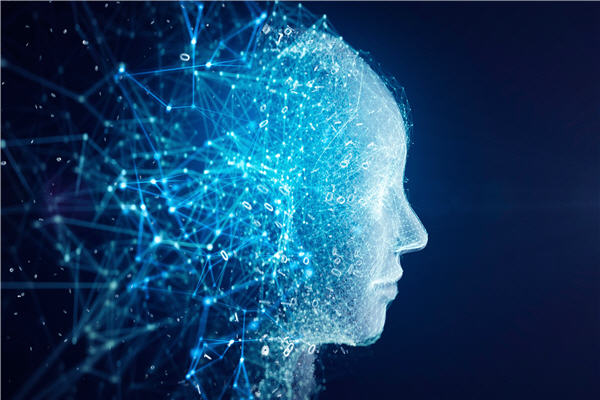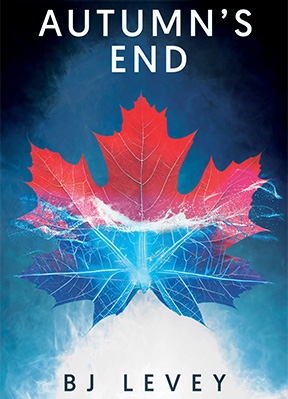The narrowing of Time and not without AI in Sci Fi futures
When we consume or create sci-fi stories through our modern lens, is it realistic to have a setting thousands of years in the future if nothing halts the meteoric evolution of artificial intelligence?
Yes – but only if there’s a major cataclysm.
Like a rogue asteroid slamming into our planet and plunging us into a decades-long nuclear winter. Or the take-your-pick man-made apocalypse – from nuclear war to genetic engineering gone wrong to a sudden environmental collapse.
Yes, these could all similarly end civilization as we know it and plunge us into a new Dark Age and maybe put the AI industry on ice for a few hundred years.
But barring any of these coming to pass, artificial intelligence, the current and possibly the last great invention of humankind, will continue its meteoric rise.
And it might end up being the apocalypse itself if we aren’t successful at solving at least some of the larger issues of alignment – but that’s another story.
The reality is we’ve seen unprecedented changes worldwide since AI hit the public mainstream at the end of 2022 with the launch of ChatGPT. Science fiction is turning into science fact before our eyes.
And not even two years later, its evolution remains exponential, changing economics and workforces, disrupting education, accelerating job uncertainty and cyberwarfare. It’s changing our world in ways we are not even aware of yet much less able to predict.
Moratoriums aimed at slowing down AI development have failed and for the first time in history the private sector has is been working with governments to develop regulatory legislation – of themselves! How effective these measures will be remain to be seen.
I wouldn’t hold my breathe because profit trumps sense. The biggest and most powerful corporations on earth are spending bigger billions in the most competitive race in history to develop ever more sophisticated AI.
Why? Because they know, and have known for many years, that there will not be a second place in the race to give birth to AGI or Artificial General Intelligence.
After that, if you ain’t first, you’re last. Literally.
Reading and re-reading some of the older classic science fiction stories from the likes of JG Ballard, Issac Asimov and Phillip K Dick has brought this all into stark contrast of late.
These visionaries were writing in a time where computers were still very much in their infancy and not particularly impressive so AI and intelligent machines largely did not take centre stage in these older science fiction worlds making it easier then to anthropomorphise distant futures that mirror our own.
But is it now feasible to write a story without intelligent machines? I’d say no, not unless you’re writing something post-apocalyptic.
And the time issue is inextricably linked to this.
I find many modern stories still attempt to extend their reach thousands (and sometime millions!) of years into the future even with AI as a prominent component of their story’s setting or character mix.
It’s just not realistic to set our gaze so far ahead.
In fact, even near future sci-fi needs tempering for it is far more difficult to peer into the a future than it was ten years ago.
The fog has thickened.
Bottom line there is no future without AI and AI will in turn will continue to thicken the fog we collectively attempt to pierce when gazing ahead into the future.
The narrowing of Time and not without AI in Sci Fi futures
When we consume or create sci-fi stories through our modern lens, is it realistic to have a setting thousands of years in the future if nothing halts the meteoric evolution of artificial intelligence?
Yes – but only if there’s a major cataclysm.
Like a rogue asteroid slamming into our planet and plunging us into a decades-long nuclear winter. Or the take-your-pick man-made apocalypse – from nuclear war to genetic engineering gone wrong to a sudden environmental collapse.
Yes, these could all similarly end civilization as we know it and plunge us into a new Dark Age and maybe put the AI industry on ice for a few hundred years.
But barring any of these coming to pass, artificial intelligence, the current and possibly the last great invention of humankind, will continue its meteoric rise.
And it might end up being the apocalypse itself if we aren’t successful at solving at least some of the larger issues of alignment – but that’s another story.
The reality is we’ve seen unprecedented changes worldwide since AI hit the public mainstream at the end of 2022 with the launch of ChatGPT. Science fiction is turning into science fact before our eyes.
And not even two years later, its evolution remains exponential, changing economics and workforces, disrupting education, accelerating job uncertainty and cyberwarfare. It’s changing our world in ways we are not even aware of yet much less able to predict.
Moratoriums aimed at slowing down AI development have failed and for the first time in history the private sector has is been working with governments to develop regulatory legislation – of themselves! How effective these measures will be remain to be seen.
I wouldn’t hold my breathe because profit trumps sense. The biggest and most powerful corporations on earth are spending bigger billions in the most competitive race in history to develop ever more sophisticated AI.
Why? Because they know, and have known for many years, that there will not be a second place in the race to give birth to AGI or Artificial General Intelligence.
After that, if you ain’t first, you’re last. Literally.
Reading and re-reading some of the older classic science fiction stories from the likes of JG Ballard, Issac Asimov and Phillip K Dick has brought this all into stark contrast of late.
These visionaries were writing in a time where computers were still very much in their infancy and not particularly impressive so AI and intelligent machines largely did not take centre stage in these older science fiction worlds making it easier then to anthropomorphise distant futures that mirror our own.
But is it now feasible to write a story without intelligent machines? I’d say no, not unless you’re writing something post-apocalyptic.
And the time issue is inextricably linked to this.
I find many modern stories still attempt to extend their reach thousands (and sometime millions!) of years into the future even with AI as a prominent component of their story’s setting or character mix.
It’s just not realistic to set our gaze so far ahead.
In fact, even near future sci-fi needs tempering for it is far more difficult to peer into the a future than it was ten years ago.
The fog has thickened.
Bottom line there is no future without AI and AI will in turn will continue to thicken the fog we collectively attempt to pierce when gazing ahead into the future.









